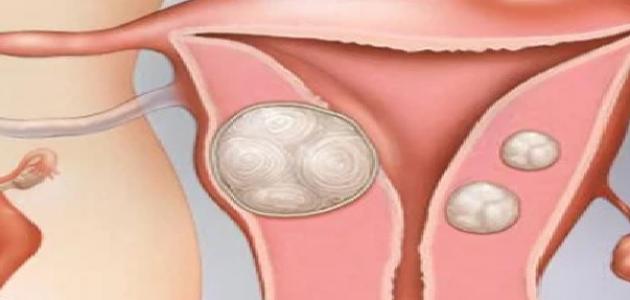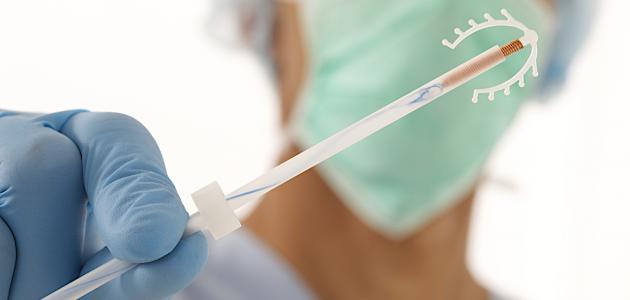pregnancy
It is difficult for a pregnant woman to know the exact day on which her pregnancy began, and when she visits the doctor, she is usually calculated that the beginning of pregnancy begins from the first day of her last menstrual period, and the story of the possibility of the beginning of pregnancy for a female begins every month, and the first stage is known as the ovulation stage, where a set of The eggs grow inside the ovary inside small fluid-filled sacs called follicles, and eventually one mature egg emerges from the follicular sac. After the egg is released, it develops into what is called the corpus luteum. Which in turn works to secrete female hormones that help increase the thickness of the uterine lining to prepare it for the possibility of pregnancy, so it is ready to receive the fertilized egg. The egg released from the ovary usually remains in the fallopian tube for approximately 24 hours, waiting for the sperm to fertilize it. It is known that the egg needs only one sperm to fertilize it. The duodenum goes through all these stages about two weeks after the menstrual cycle, and after the egg is fertilized and the fertilized egg moves to the uterus, the fertilized egg begins to attach to the wall of the uterus, and this process is called implantation.
How to know pregnancy in the first week
Pay attention to early pregnancy symptoms
Some signs and symptoms that can draw a pregnant woman's attention to the possibility of pregnancy appear from the first few weeks, the most common of which are the following:
Read also:Pregnancy control pills- Menopause: If a woman is at an age that allows her to become pregnant and have children, and her expected menstrual period is delayed by a week or more, the reason for this may be the beginning of pregnancy. However, this symptom can be misleading if a woman's menstrual cycle is usually irregular.
- Breast swelling: Hormonal changes begin early in pregnancy, and this may affect the breasts, making them more sensitive and painful. It is worth noting that pain and discomfort in the breasts are likely to decrease after a few weeks of pregnancy. As the body begins to adapt to hormonal changes.
- Nausea with or without vomiting: A woman can experience nausea at any time of the day, and this symptom often begins during the first month of pregnancy. However, some women feel nauseous early on and others do not feel it at all. In fact, the cause of nausea at the beginning of pregnancy is still not completely clear, but it is often attributed to hormonal changes during pregnancy.
- increased urination: At the beginning of pregnancy, a pregnant woman may feel that she needs to urinate frequently, more than usual. This is due to the increase in the amount of blood in the body during pregnancy, so the amount of blood that is processed in the kidneys increases, and thus the amount of fluids that the kidneys excrete into the bladder increases.
- Fatigue and exhaustion: Fatigue is classified as one of the most common initial symptoms of pregnancy, as progesterone levels rise, which may make the pregnant woman feel tired and sleepy.
- Mood Swings: Hormonal changes that occur at the beginning of pregnancy can make pregnant women more emotional and sensitive than usual.
- Increased gas: Hormonal changes during early pregnancy may cause a feeling of bloating.
- Blood drip: Sometimes the first signs of pregnancy appear in the form of a few spots of blood coming out of the vagina. This bleeding is known as implantation bleeding, and the cause of this bleeding is due to the attachment of the fertilized egg to the lining of the uterus about 10-14 days after fertilization. Implantation bleeding usually occurs around the time the usual day your menstrual period begins. However, this bleeding does not necessarily occur in all pregnant women.
- Cramping and colic: Some women experience mild cramps early in pregnancy.
- constipation: Hormonal changes that occur in a woman's body during pregnancy cause the digestive system to slow down, which may lead to constipation.
Read also:Relieve menstrual pain
Conduct pregnancy tests
The pregnancy test detects a specific hormone found in the urine or blood, called human chorionic gonadotropin (HCG), which is known among people as the pregnancy hormone. Pregnancy hormone production begins in the woman's placenta after the fertilized egg is implanted in the uterus. Pregnancy can be checked in two ways, and the following is a description of each:
- Urine examination: It is preferable to perform a home pregnancy test that relies on a urine sample on the morning of the first day of the absence of a menstrual period in order to obtain the best results. In addition, performing the test early in the morning provides a more concentrated urine sample. A test can be used by passing the test strip over the urine line while urinating, but it must be passed in the middle of the urination period and not at the beginning, or by placing the test strip inside a sample collected from the urine. It should be noted that different home pregnancy tests differ in the way they display the results. The color of the strip may change, or a line or a certain mark may appear indicating pregnancy.
- blood test: A blood test is performed in the doctor’s office or in a medical laboratory, so that the presence of the pregnancy hormone in the blood is detected, and its concentration is measured in some cases. One of its benefits is that it shows the presence of pregnancy earlier than with home pregnancy tests, after 7-12 days. Usually from pregnancy.
Read also:The difference between period pain and pregnancy pain
Tips for the first week of pregnancy
A pregnant woman must maintain a healthy lifestyle in order to protect the fetus and enhance her health as well. Therefore, the pregnant woman is advised to follow a healthy and integrated diet, in addition to following some steps to take care of her health in general. There are some steps that must be followed immediately after pregnancy begins:
- Take folic acid supplements daily: Pregnant women should start taking folic acid supplements daily as soon as they learn about the beginning of pregnancy, as folic acid is known to be one of the essential nutrients that protects the child from brain and spinal cord problems. In addition to folic acid, a pregnant woman may need to take vitamin D supplements at a dose of 10 mg daily. She can also take multivitamin supplements during pregnancy, but that does not negate the importance of the pregnant woman receiving a comprehensive diet that contains all the vitamins and minerals she needs.
- Quit Smoking: Smoking during pregnancy exposes the pregnant woman to a greater risk of miscarriage, ectopic pregnancy, and premature birth. The smoke inhaled by pregnant women can also affect the growth of the unborn child, leading to low birth weight.
- Reduce drinking caffeine: Pregnant women can enjoy a cup of coffee a day, but not more than two cups per day.
- Follow up on your pregnancy health with your doctor: The pregnant woman should be careful to see her personal doctor to ensure the health and safety of the pregnancy, in addition to the need to pay attention to any medication she takes, take sufficient rest daily, and not do physical effort that may tire her.









